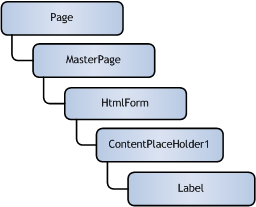Love Yourself, starting today in menopause something changes: web campaign to help women
Tosca d’Aquino testimonial and protagonist of a major information initiative promoted by SIGO – Italian Society of Gynecology and Obstetrics in collaboration with MenopauseOK, an educational project of MSD Italy, with the aim of “changing the narrative” of menopause, a phase in which women today spend about a third of their lives.
Sex, nutrition, skin care, physical activity: on the MenopauseOK portal.it medical and scientific information on menopause, “confidential” video interviews, tests, and online consultations with experts to help women better manage the changes in their bodies and make use of all available resources to counter symptoms, among them the use of next-generation hormone replacement therapies.
The next milestone is 90 years of life expectancy for women, to be reached in the West by 2030. And menopause, in which a woman already spends almost a third of her life, about 30 years, will be an increasingly central phase, destined to accompany women who are still leading in the family, professional and social spheres.
Many women, however, are not aligned with the “new” menopause and still go through it as a residual phase, to be experienced at low intensity, suffering its symptoms, body changes, and inevitable repercussions on relationship life and personal balance.
Promoting a new, proactive and dynamic way of coping with menopause, through love and self-discovery, prevention, and the use of therapeutic resources to counter its symptoms in the short and long term, is the goal of “Love Yourself – Menopause, from today something changes” information campaign promoted by SIGO – Italian Society of Gynecology and Obstetrics in collaboration with MenopauseOK, an educational project of MSD Italy.
The new menopause narrative proposed by “Love Yourself” leverages a series of original “instructions for making yourself happy” at this stage of life, conveyed through content on the MenopauseOK portal.it, and entrusted to the voice and face of Tosca d’Aquino: the popular actress and television host is the testimonial of the campaign and the animator of Secrets of Style, a series of confidential video interviews, uploaded on the portal, in which she will propose to a team of experts the questions and doubts that concern women who are approaching or are in menopause. Topics covered range from nutrition to physical fitness, sexuality to skin care.
Because health and well-being can be maintained even during menopause if you learn to manage it and not suffer it. “Menopause is a natural event in the physiological developmental cycle of a woman’s life; a very delicate period that is faced and experienced by each woman differently, but which has as a common denominator an increased physical and psycho-emotional vulnerability“ says Nicola Surico, Full Professor of Gynecology and Obstetrics, University of Eastern Piedmont (UPO), Novara, Italy and SIGO President S.r.l. “this campaign aims to raise women’s awareness of the importance of maintaining a balanced lifestyle during menopause and provides them with the tools to realize more readily the changes taking place in their bodies, coping with these situations without closing in on themselves“.
Menopause coincides with the end of reproductive capacity and the end of menstruation: in Italy this occurs, in terms of average age, at 50.8 years of age. Hot flashes, vaginal dryness, sleep disturbances, sweating, difficulty controlling body weight, and emotional instability are the symptoms that to varying degrees from one woman to another characterize this transition. In the medium to long term, the “fall” in estrogen levels leads to alterations in bone, lipid and glucose metabolism that increase the risk of osteoporosis, cardio/cerebrovascular disease, diabetes, overweight and obesity.
Menopause, at whatever age it occurs, conditions the onset of cardiovascular risk factors, compared with women of the same age who are not menopausal.
HRT (Hormone Replacement Therapy) has been used to counteract menopausal symptoms for several years. HRT is the only truly effective therapy in the treatment of climacteric syndrome (hot flashes, sweating, insomnia etc.), in the prevention of osteoporosis, which can begin to occur in the first 10 years after menopause, and, in general, in maintaining a good mental and physical balance. Conventional HRT has recently been joined by selective hormone therapies, which help counteract the typical symptoms of climacteric without the side effects of conventional HRT.
Particularly the Tissue Selective Estrogen Complex or Tissue-Selective Estrogen Complex (TSEC) which is a hormone replacement therapy indicated for women who have intolerance to progestin, a hormone that is usually used in conventional HRT.
TSEC can effectively counteract the most troublesome menopausal symptoms, such as hot flashes, night sweats, and sleep quality, with a positive tolerability profile.
“The new hormone therapies differ from the standard therapies classically used until several years ago both in dosage, with estrogen content reduced by as much as 50 percent compared to the past, and in pharmacological composition, with estrogen being combined with active ingredients other than progestin that can act selectively.”, says Stefano Lello, Gynecologist, Women’s and Children’s Health Department, Fondazione Policlinico Gemelli, Rome. “These combinations improve vasomotor symptoms (flushing and sweating) and patients’ overall quality of life, without increased risk of breast or uterine cancer or cardiovascular disease and thrombosis, as shown in clinical trials.”.
The impact on quality of life of symptoms associated with menopause amplifies the repercussions on the psychological sphere: menopause is often accompanied by reduced self-esteem, dissatisfaction with current life, and anxiety about the future. But it is precisely this negative view that the Love Yourself initiative wants to overturn today. “The Love Yourself campaign aims to make women realize that menopause is a unique opportunity to do prevention, accept themselves in a new role, and gain a new femininity“, says Rossella Nappi, associate professor of Obstetric and Gynecological Clinic at the University of Pavia.
“Not you have to experience menopause as a negative and catastrophic event, but as a time to relaunch yourself to reclaim your body with more love and respect than before, on the one hand with lifestyle, aimed at healthy eating and body weight control, and on the other hand with physical activity that helps reduce cardiovascular risk factors, increases the ability to burn body fat, and stabilizes blood sugar levels“.
“Love Yourself” is an invitation to love oneself even in this phase of change by first trying to understand what is happening and finding one’s own style to deal with it. To facilitate this path, on the MenopauseOK website.it women will be able to take the “And what menopause are you” test?” that will help them better understand their own needs and characteristics. And they will be able to turn to the Love Band, the online team of expert gynecologists who will privately answer questions, queries and concerns posed by users.
And, above all, they will be able to rely on the medical and scientific content of the portal and the exuberance and irony of Tosca, who will guide to the discovery of “style secrets” useful to manage the changes related to menopause, confronting a team of experts flanked by a gynecologist specialist: from the exercises and tricks of the personal trainer to the advice of the nutritionist, from the secrets to have a skin always hydrated and radiant, to the suggestions to live sexuality and relationships with the partner.
“Today, although we are all connected and connected, on the subject of menopause there is still much to know, there are reticence and taboos that condition many women and limit their willingness to inform themselves“, says Tosca D’Aquino. “I therefore jumped at the opportunity to participate in the “Love Yourself” campaign, considering it not only a professional experience but also an opportunity to explore these issues firsthand, a phase that is certainly delicate but which, if experienced in the right way, can surprise and engage us, can be sweet, interesting, and open us to new perspectives“.
Menopause and nutrition
For rising weight and waistline, no to saturated fats, soft drinks and snacks,
yes to the Mediterranean diet (vegetables, fruits, grains, olive oil…)
In the pre- and post-menopausal diet, the amount of saturated fat must be reduced because weight tends to rise and waistline to widen. It is also appropriate to intervene by reducing simple carbohydrates contained in carbonated and sugary drinks, snacks, and sweets, making way for whole-grain flours; this better regulates insulin secretion. It is then necessary to increase the intake of Calcium by choosing the foods that are richest in it, fish and legumes, and reducing cheese. The Mediterranean diet seems tailor-made to meet the needs of menopausal women, rich as it is in vegetables, fruits, grains, legumes, oily fish and extra virgin olive oil.
Stefania Giambartolomei, Physician specializing in gastroenterology and human nutrition
Menopause and physical fitness
30-40 minutes of exercise at least twice a week
To help the heart, strengthen bones and improve mood
Devoting 30-40 minutes two to three times a week to exercise helps regularize blood sugar, triglycerides, lowers blood pressure, increases body fat consumption and helps keep weight under control.
The type of activity, duration of exercise and its intensity depend on the woman’s general health condition and how accustomed she is to exercise. A sedentary woman who around the age of 40 decides it is time for some physical activity should start gradually, with small, lightly overloaded exercises or increasingly long brisk walks. The woman who has always exercised may try her hand at a jog, free-body exercises, a game of tennis or swimming.
Gennaro Napolitano, Exercise Science Specialist, Physiotherapist and Personal Trainer
Menopause and skin care
Managing the consequences of estrogen deficiency:
More elastic and hydrated skin with Hormone Replacement Therapy
Estrogen deficiency underlies not insignificant structural changes in all skin components. At the epidermal level, cell turnover slows down. The ability of the stratum corneum to maintain hydration is reduced, and this, together with reduced sebaceous gland function, results in dry skin and mucous membranes. All this, combined with physiological aging and aging from external causes, results clinically in thinner, drier, looser skin with more pronounced wrinkles.
To prevent these changes, the use of moisturizing and emollient products containing urea, vitamin E, hyaluronic acid, antioxidants such as vitamin C is recommended. Retinol creams are also excellent, both for their exfoliating power and for their restorative action. But this makes more sense when combined with appropriate hormone replacement therapy. If started early, can improve skin hydration by 20-25% and increase skin thickness by 7/15.

